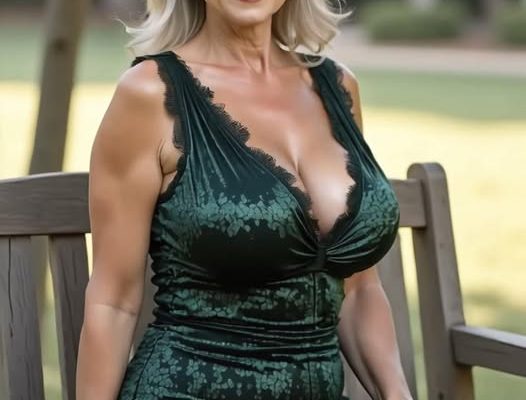Tom was used to hearing the same thing: older women don’t want someone like him. At 45, he wasn’t a flashy millionaire or a charming playboy, but what he lacked in superficial allure, he made up for in something much deeper—emotional maturity. While his younger peers were still caught up in the chase, Tom had already experienced the highs and lows of life. He knew what mattered: connection, understanding, and the ability to provide a sense of security, emotionally and mentally.
Emotional Maturity: The True Draw
Tom had always been the type to listen, to truly hear what people were saying. He knew that, for many women in their 40s and beyond, charm wasn’t enough. They had already seen enough of it to know it was often a cover for something hollow. It was in the way they looked at him, how they’d relax when he listened to their stories, how they felt heard without needing to explain everything.

Unlike younger men who were still learning how to navigate their own emotions, Tom had worked through his. He knew when to speak and, perhaps more importantly, when to listen. Emotional maturity wasn’t just about managing his own feelings—it was about recognizing and validating the emotions of those around him, especially women.
Tom had learned the hard way that relationships based on charm or quick infatuation didn’t last. He didn’t need to impress women with fancy words or promises. What mattered was that he was stable, grounded, and emotionally present. That was the real attraction.
Stability: More Than Financial
While some men his age were focused on career success or financial stability, Tom knew the true form of stability women like Emma—who had been through marriages, breakups, and raised children—really wanted. It wasn’t about buying her dinner or offering gifts. It was about showing up, consistently, through the good and the bad.
For Emma, emotional stability meant that Tom wouldn’t overreact or shut down when life got tough. When her workday was stressful, he was the first person she could call who wouldn’t add to the pressure. Tom’s calm nature was exactly what she needed in a world that often felt chaotic.
Independence Meets Interdependence
Tom wasn’t looking for someone to complete him. He was complete on his own, with a full life, passions, and pursuits. What he wanted was someone to share his life with, to support and be supported in equal measure.
Emma had a similar outlook on life. She didn’t need to be rescued—she needed a partner. Someone who didn’t just bring his own baggage into a relationship, but who could also offer a sense of balance. They didn’t need to rely on each other for everything, but they knew that when life threw curveballs, they’d face them together. It wasn’t about needing each other—it was about wanting to build a life together, based on trust and mutual respect.
The Importance of Respect and Understanding
For Tom, understanding Emma wasn’t about pretending to know everything or offering solutions to every problem she had. Sometimes, it was simply sitting in silence, letting her vent, and offering a hug when the words weren’t enough. He respected her independence—her years of experience, her career, her past—and he knew better than to try to “fix” her.
What really drew Emma to Tom was his emotional intelligence. He understood when she needed space and when she needed closeness. He could read her body language and, more importantly, her unspoken needs. That level of empathy and emotional insight was rare—and it was exactly what she had been looking for.
Conclusion
In the end, what older women like Emma wanted wasn’t a man who could charm them with slick words or grand gestures—it was a man who could offer something more lasting. For Tom, it wasn’t about performing or playing games. It was about being real, being there, and showing up when it mattered. It was about offering something deeper than just a connection—he offered stability, understanding, and the kind of maturity that only comes with experience. That was what Emma had been searching for all along.



